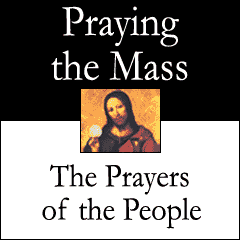…well, at least for his Wedding. And no, I am not implying by that that he and his beloved were married according to the rites of the Catholic Church or by a Catholic celebrant–as far as I know, they used neither.
But as Mother Nagsus points out over at Cooees, they DID use a Papist shrine for the occasion. I left a comment there to the effect that they it was interesting that they prefered a Catholic church over an AOG barn.
Which reminds me of an interesting fact. Ceremonial lives on in popular rites of passage long after we have forgotten their original purpose. How many guests at a modern wedding ceremony have any idea why there is a cake and why the bride and groom have to cut it?
I don’t have any sources for this, but the pop-wisdom is that when the puritans tried to do away with all papist ceremonies in England during the Republic, weddings were one area that refused to submit. Many later non-conformist churches (eg. old congregationalist churches even here in Australia) were built with two side aisles instead of a central aisle for the single purpose of preventing processions. Which might have suited the local pastor, but not the brides and brides’ mothers who wanted to get married in such churches. It was, I understand, the pressure for a “traditional marriage procession” down the aisle that saw the restoration of central aisle in many of these anti-papist churches.
Today, we see that even Japanese couples want a “traditional western wedding” with all the trappings, and civil celebrants offer “chalices” of wine to couples to drink together “as a sign of their union”. We can’t blame the Sebastians too much then. Their puritan barns might suit their puritanical theology of worship, but when it comes to such key social occasions as a wedding, even the most ardent protestant will succumb to the very human instinct to lay on the ceremony with a trowel.








